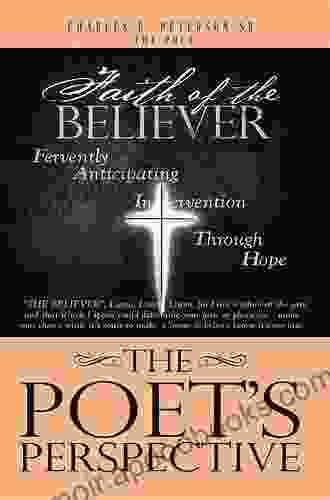Debating Knowledge Research and Method: Exploring the Epistemological Foundations of Knowledge Management

Knowledge management is a rapidly growing field that has attracted a great deal of attention from both academics and practitioners. However, there is still much debate about the epistemological foundations of knowledge management. In this book, the authors explore the different ways in which knowledge is created, acquired, and shared. They argue that knowledge is a social and situated phenomenon that is constantly being negotiated and contested. They explore the implications of this for knowledge management practices, and they propose a new framework for understanding and managing knowledge in organizations.
5 out of 5
| Language | : | English |
| File size | : | 1496 KB |
| Text-to-Speech | : | Enabled |
| Screen Reader | : | Supported |
| Enhanced typesetting | : | Enabled |
| Word Wise | : | Enabled |
| Print length | : | 316 pages |
Knowledge Creation
The authors begin by examining the different ways in which knowledge is created. They argue that knowledge is not simply a product of individual cognition, but rather a social and situated phenomenon that is produced through interaction with others. They draw on the work of social constructivist theorists to support their argument, and they explore the implications of this for knowledge management practices.
Knowledge Acquisition
The authors then turn their attention to the issue of knowledge acquisition. They argue that knowledge is not simply acquired through passive learning, but rather through active and engaged participation in social practices. They draw on the work of situated learning theorists to support their argument, and they explore the implications of this for knowledge management practices.
Knowledge Sharing
The authors next examine the issue of knowledge sharing. They argue that knowledge is not simply shared through formal communication channels, but rather through informal and tacit processes. They draw on the work of social network theorists to support their argument, and they explore the implications of this for knowledge management practices.
Knowledge Negotiation
The authors then turn their attention to the issue of knowledge negotiation. They argue that knowledge is not simply a static entity, but rather a dynamic and contested phenomenon that is constantly being negotiated and renegotiated. They draw on the work of critical theorists to support their argument, and they explore the implications of this for knowledge management practices.
Knowledge Contestation
The authors conclude by examining the issue of knowledge contestation. They argue that knowledge is not simply a neutral and objective phenomenon, but rather a political and contested phenomenon that is shaped by power relations. They draw on the work of feminist theorists to support their argument, and they explore the implications of this for knowledge management practices.
Implications for Knowledge Management Practices
The authors argue that the epistemological foundations of knowledge management have profound implications for knowledge management practices. They propose a new framework for understanding and managing knowledge in organizations that is based on the social and situated nature of knowledge. They argue that this new framework provides a more effective and sustainable approach to knowledge management that can help organizations to create, acquire, share, and negotiate knowledge in a more effective way.
This book is a valuable contribution to the field of knowledge management. It provides a comprehensive and nuanced examination of the epistemological foundations of knowledge management, and it offers a new framework for understanding and managing knowledge in organizations. The authors' work is a must-read for anyone who is interested in the future of knowledge management.
5 out of 5
| Language | : | English |
| File size | : | 1496 KB |
| Text-to-Speech | : | Enabled |
| Screen Reader | : | Supported |
| Enhanced typesetting | : | Enabled |
| Word Wise | : | Enabled |
| Print length | : | 316 pages |
Do you want to contribute by writing guest posts on this blog?
Please contact us and send us a resume of previous articles that you have written.
 Book
Book Novel
Novel Page
Page Chapter
Chapter Text
Text Story
Story Genre
Genre Reader
Reader Library
Library Paperback
Paperback E-book
E-book Magazine
Magazine Newspaper
Newspaper Paragraph
Paragraph Sentence
Sentence Bookmark
Bookmark Shelf
Shelf Glossary
Glossary Bibliography
Bibliography Foreword
Foreword Preface
Preface Synopsis
Synopsis Annotation
Annotation Footnote
Footnote Manuscript
Manuscript Scroll
Scroll Codex
Codex Tome
Tome Bestseller
Bestseller Classics
Classics Library card
Library card Narrative
Narrative Biography
Biography Autobiography
Autobiography Memoir
Memoir Reference
Reference Encyclopedia
Encyclopedia Adrian Mitchell
Adrian Mitchell Ahmet T Kuru
Ahmet T Kuru Sarah Wetzel
Sarah Wetzel Chittadhar Hrdaya
Chittadhar Hrdaya Michael Frishkopf
Michael Frishkopf Sean Rubin
Sean Rubin Peter Pesic
Peter Pesic Adrian Nelson
Adrian Nelson Kathleen Ossip
Kathleen Ossip Colleen Lye
Colleen Lye Alison Hart
Alison Hart Frank Visser
Frank Visser Elijah Cummings
Elijah Cummings Conrad Bauer
Conrad Bauer John David Mann
John David Mann Donna Anastasi
Donna Anastasi Robin Renwick
Robin Renwick Rick Perry
Rick Perry Matt Syverson
Matt Syverson Hanna Lerner
Hanna Lerner
Light bulbAdvertise smarter! Our strategic ad space ensures maximum exposure. Reserve your spot today!

 Aleksandr PushkinUnleashing the Dark Crisis: An Epic Journey in Justice League Road to Dark...
Aleksandr PushkinUnleashing the Dark Crisis: An Epic Journey in Justice League Road to Dark... Robert FrostFollow ·10.7k
Robert FrostFollow ·10.7k Gage HayesFollow ·9.9k
Gage HayesFollow ·9.9k Mario BenedettiFollow ·7.3k
Mario BenedettiFollow ·7.3k Henry GreenFollow ·4.5k
Henry GreenFollow ·4.5k Ernest PowellFollow ·10.2k
Ernest PowellFollow ·10.2k Mark MitchellFollow ·8.4k
Mark MitchellFollow ·8.4k Walt WhitmanFollow ·15.6k
Walt WhitmanFollow ·15.6k Russell MitchellFollow ·13.1k
Russell MitchellFollow ·13.1k

 Jamie Bell
Jamie BellUnlock Your Mind with "Ever Wonder Why And Other...
Prepare to...

 Robert Frost
Robert Frost30 Day Betting Challenge: Transform Your Betting Habits...
Are you tired of...

 Derrick Hughes
Derrick HughesWhat Is Victory In War? Unraveling the Enigma of Triumph
The Illusion...

 Jesse Bell
Jesse BellThe Shooters: A Gripping Presidential Agent Novel That...
Enter the Shadowy World of...

 Ernest Hemingway
Ernest HemingwayUnlocking the Theological Depths of Paul Claudel: An...
Prepare to embark on an...
5 out of 5
| Language | : | English |
| File size | : | 1496 KB |
| Text-to-Speech | : | Enabled |
| Screen Reader | : | Supported |
| Enhanced typesetting | : | Enabled |
| Word Wise | : | Enabled |
| Print length | : | 316 pages |












